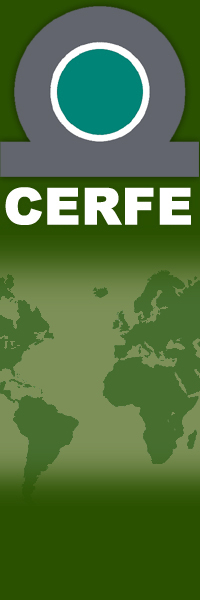Rome (Italy), 1977. In the spring of 1977, some young members of a group called Febbraio 74, involved in political, social and religious study and experimentation, gathered around the current president of CERFE, Giancarlo Quaranta, to conduct a national research on young catholics in Italy. The research was carried out with rigorous academic criteria and the results were surprising. It revealed the presence of thousands of hitherto unknown youth groups and it especially showed that all these people – around half a million, distributed throughout the country – played an important role in modernising Italian society by bringing together both tradition and change.
Via Anastasio II (Rome – Italy), 1980. In May 1980, legal status was given to this initial core of researchers by setting up the Centro di Ricerca e Documentazione Febbraio '74, based in Rome in Via Anastasio II. October of the same year saw the creation of the first scientific committee chaired by Paolo Ammassari, an eminent sociologist and methodologist of Rome University, with the participation of scholars from several Italian universities (Milan, Rome, Bari, Florence, Naples and Perugia) and other leading researchers.
Milan and Naples (Italy), 1980. Late 1980 saw the start of a study on the social condition of the elderly, in two important Italian cities. This study was extended to the whole country in the following year. The research highlighted the great social subjectivity and considerable economic and physical capabilities of the elderly. CERFE carried out other studies at national level in the following twenty-five years.
Florence (Italy), 1981. The first issue of the scientific journal Laboratorio di scienze dell’uomo was published in order to present the epistemological and theoretical reflections on the social sciences along with the results of field studies and an update of the – sometimes burning – issues of international scientific debate.
Manaus (Brazil), 1981. This year saw an exploratory and comparative study – also with a view to training – on the relations between modernisation and development in some countries of the southern hemisphere, above all, in order to observe the effects of stress produced by forms of “extreme” modernisation on traditional cultures. CERFE teams were present not only in Manaus, but also in the heart of the Amazon rainforest, in Aswan (Egypt), Tamahrasset, Djanet and Oran (Algeria), Arusha (Tanzania), in southern Sudan, in the Indian reservations of southwestern USA, in Birmingham and Atlanta (USA) and in Mexico City.
Algiers (Algeria), 1982. The first of a series of international conferences on development was held in Algiers on 2, 3 and 4 June 1982, in cooperation with the local university. This was followed by other conferences: in Kuala Lumpur (Malaysia), 1983, on technology, culture and development; Charleston (USA), 1983, on the problem of development and energy – environmental and cultural variables; New York (USA), 1984, on minorities in the United States – a comparative approach; Bamako (Mali), 1985, on the relationship between town and countryside in Western Africa and technology transfer; Nuakchott (Mauritania), 1988, on administrative models and urban space management; Smolenice (Czech Republic), on development and underdevelopment in Europe; and ended in Mexico City in 1989 with a conference on cities, environment and public services.
Richard Toll (Senegal), 1984. March 1984 saw a working seminar in Richard Toll (Senegal) within a study then underway, funded by the Italian Ministry of Foreign Affairs, on the activities of UNICEF and NGOs in the Sahel countries. This study, along with another 8 projects that followed, was an integral part of the Italian commitment in favour of the Sahel countries. In later years CERFE conducted about 130 projects within the international cooperation sphere and geared to: establishing development policies and actions; setting up and running monitoring and evaluation systems; capacity-building and institutional building; technical assistance in all its aspects; and so on.
New York (USA), 1984. The International Committee of Advisors, composed of distiguished scholars of different nationalities and expertise, was set up in 1984. The committee members were:
Thomas Luckmann (Germany), Fernando Henrique Cardoso (Brazil), Edward Hall (USA), George Mosse (Israel), Alpha Oumar Konaré (Mali), Paolo Ammassari (Italy), Samir Amin (Egypt), Moustapha Kassé (Senegal), Joan Lewis (United Kingdom) |
|
